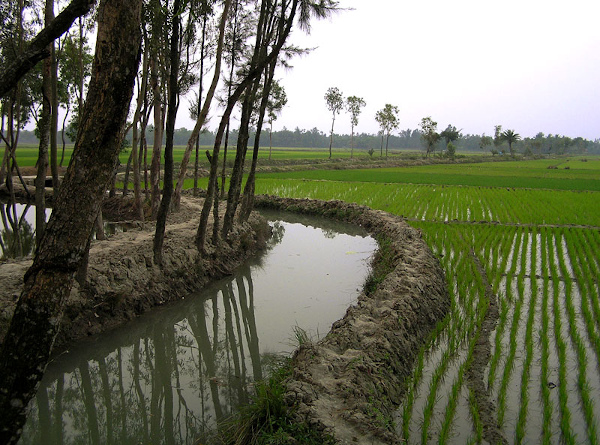The Government of India, the Government of West Bengal and the World Bank here today signed a loan agreement for a $145 million project to improve irrigation services and flood management in the Damodar Valley Command Area (DVCA) in West Bengal.
The West Bengal Major Irrigation and Flood Management Project will benefit about 2.7 million farmers from five districts of West Bengal across 393,964 ha area with better irrigation services and improved protection against annual flooding to mitigate the impact of climate change.
The agreement was signed by Shri Sameer Kumar Khare, Additional Secretary, Department of Economic Affairs, Ministry of Finance on behalf of the Government of India; Shri Krishna Gupta, Principal Resident Commissioner, on behalf of the Government of West Bengal and Mr Junaid Ahmad, Country Director, India on behalf of the World Bank.
On the occasion, Shri Khare said that India is adopting a strategic growth path that uses and manages its water resources more efficiently. This project will assist in improving irrigation and agriculture in the Damodar Valley Command Area, by optimizing the use of surface and groundwater and strengthening flood management, which will help boost agricultural productivity and increase incomes in rural areas.
The DVCA is over 60 years old, and in need of modernization. Key challenges include degradation of infrastructure and inadequate irrigation management, including poor quality of service delivery, inefficient irrigation and the failure to serve the middle and tail parts of the canal network with surface water. Tail end farmers are compelled to extract groundwater, which increases the costs of cultivation
Source: PIB
Image Courtesy:TrekEarth
You may also like
-
Navigating India’s Skill Landscape
-
Trade Connect E-platform For Exports Is Single Window, Fast, Accessible And Transformational: Shri Piyush Goyal
-
India-us Working Together In Areas Like Critical Minerals, Supply Chains And Advanced Technologies: Shri Piyush Goyal
-
Cabinet Approves Health Coverage to All Senior Citizens of the Age 70 Years and Above Irrespective of Income
-
Cabinet Approves PM Electric Drive Revolution in Innovative Vehicle Enhancement (PM E-DRIVE) Scheme With An Outlay of ₹.10,900 Crore
